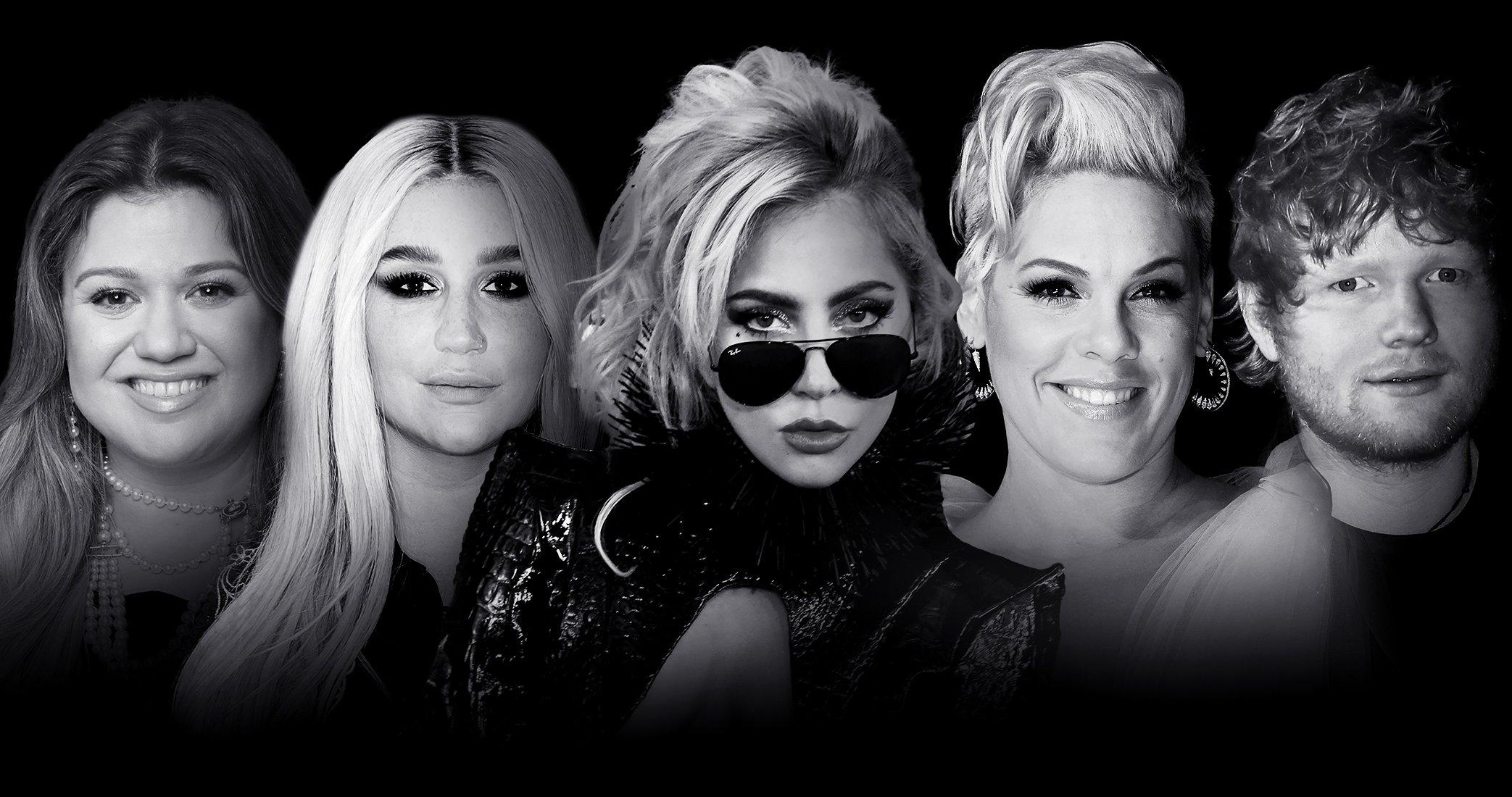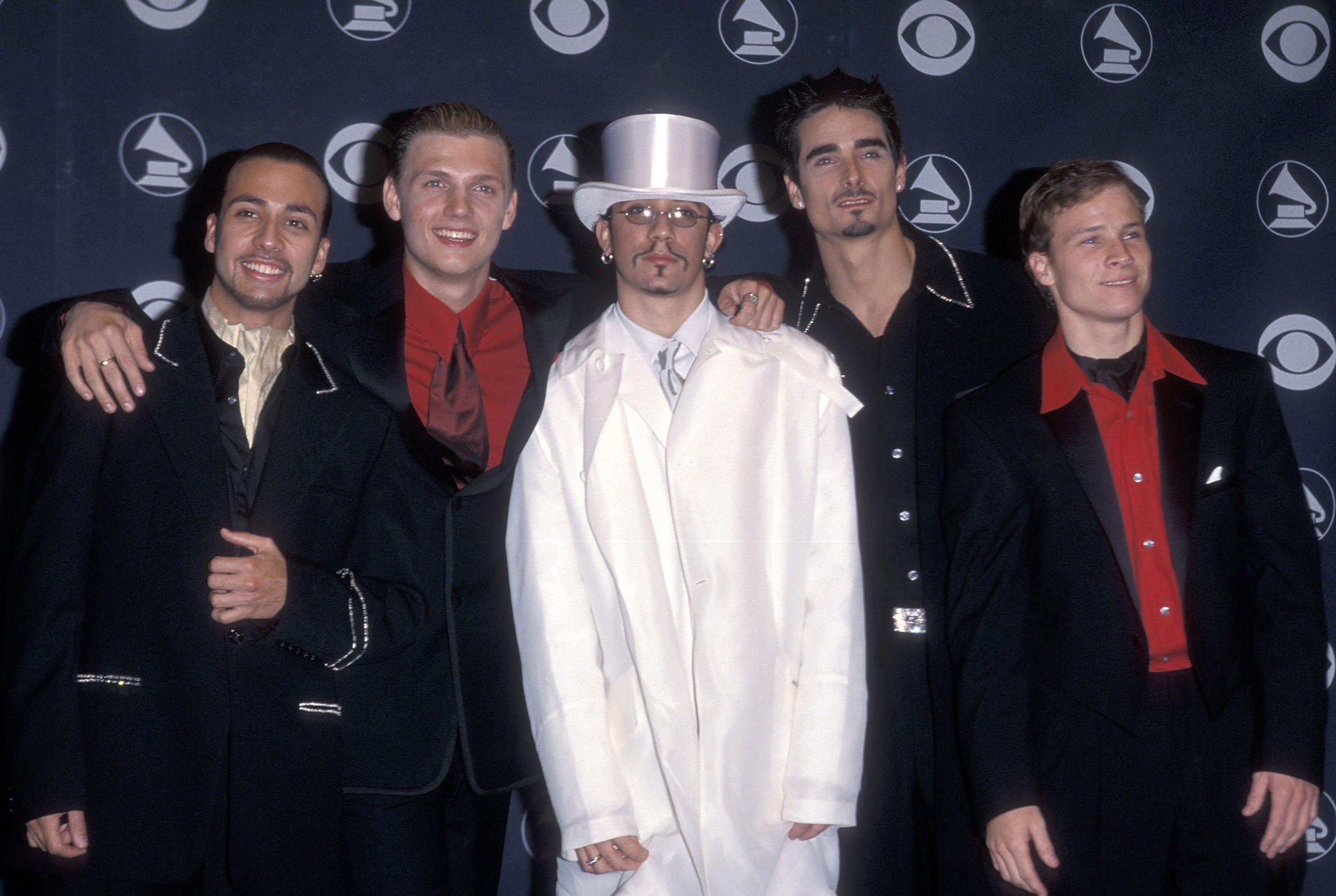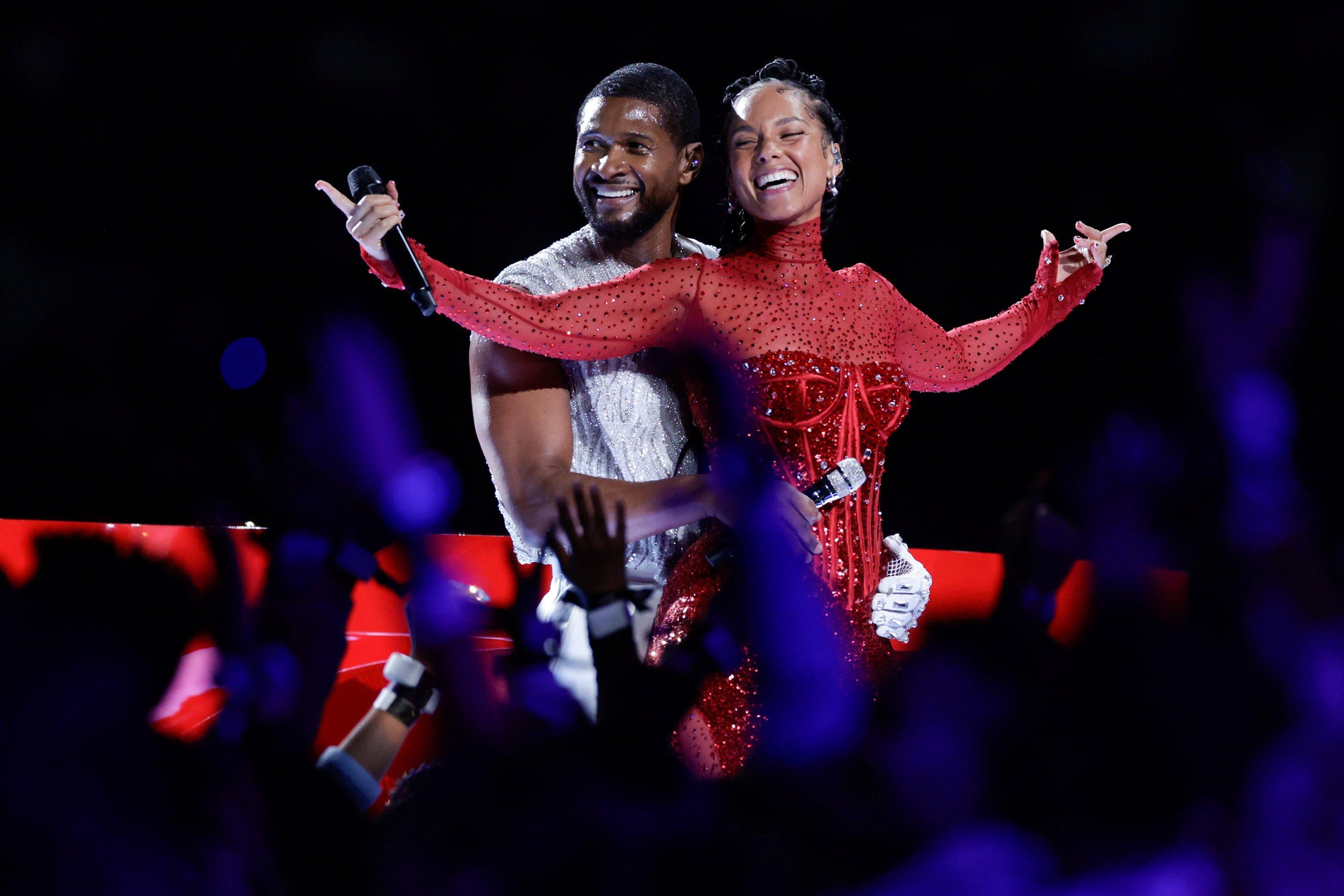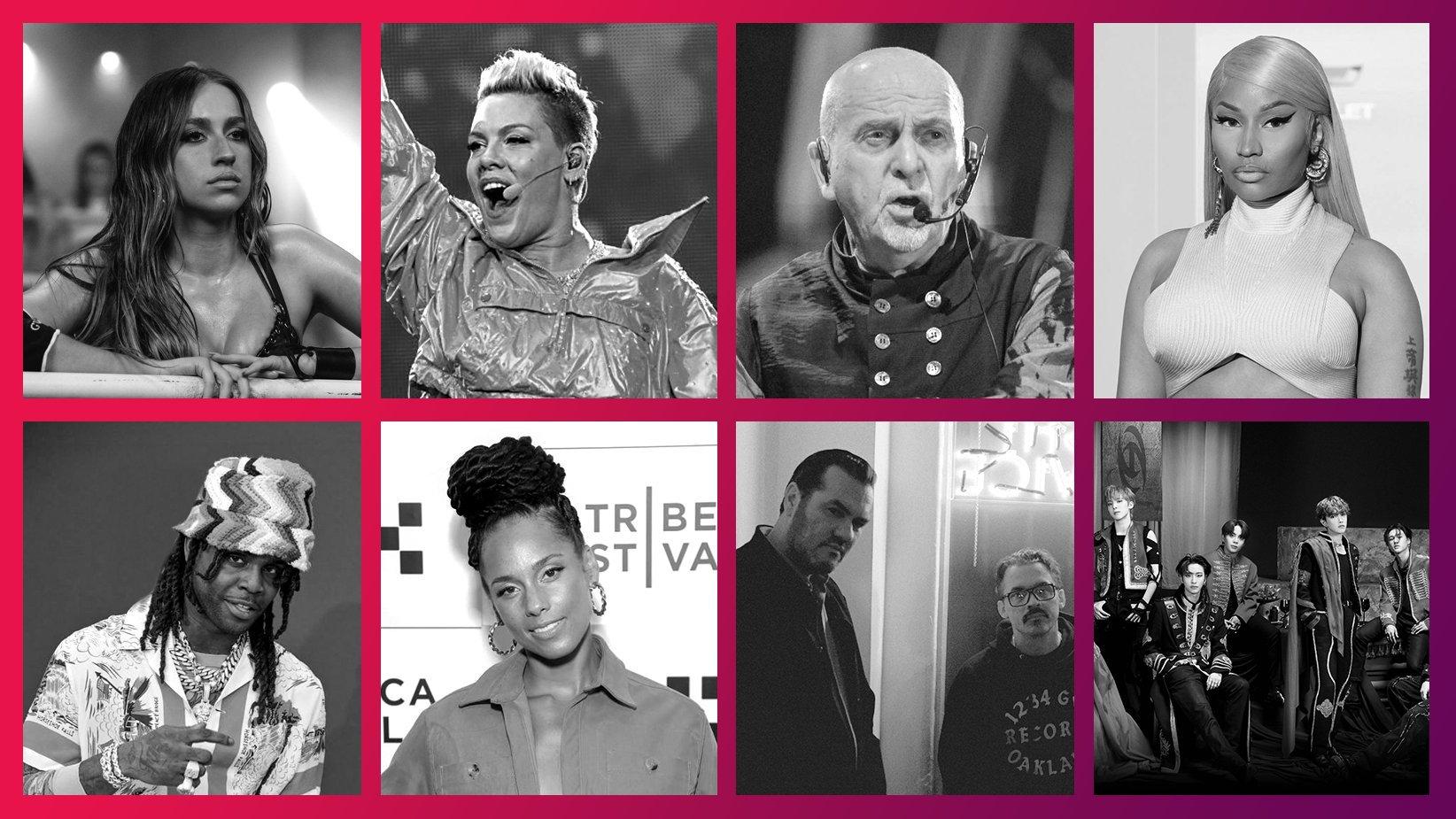December is a time for rejoicing and reflecting. How did this year go? And what will come next? As we look back on the meteoric 2023 and start planning for 2024, there’s a sundry of new music to usher in this journey.
This month, artists like Alicia Keys and the Killers will celebrate 20-year anniversaries with The Diary Of Alicia Keys 20 and Rebel Diamonds, respectively. Others will bring forth much-awaited sequels, like Nicki Minaj’s Pink Friday 2 and Chief Keef’s Almighty So 2. Adding to that, live performances by Pink and Khruangbin will get immortalized, while rising star Tate McRae will release her sophomore effort, Think Later, and Dove Cameron will debut Alchemical: Vol. 1.
Below is a guide to all the must-hear releases of December 2023, just in time to soundtrack your festivities and welcome in an inspiring new year. Read on for big releases from ATEEZ, Peter Gabriel, Neil Young, and more.
Dove Cameron - Alchemical: Vol. 1
Release date: Dec. 1
Following Dove Cameron's viral, platinum-certified 2022 hit "Boyfriend," expectations were high for the artist's first studio album. The singer and actress will release Alchemical: Vol. 1 at the top of the month.
"I wrote Volume 1 during a period of deep healing and space to process that I had never given myself. I hope you feel yourself in these songs as much as I do. Part 1: tear down. Part 2: rebuild," the singer shared on Instagram, teasing Vol. 2 of the collection (release date yet to be announced).
A follow-up to Cameron’s 2019 debut EP Bloodshot / Waste, Vol. 1 features eight tracks. Aside from "Boyfriend," she has revealed singles "Breakfast," "Lethal Woman," and "Sand," building up a sultry sound and an alluring mystique that prompt her as one to watch.
Dillon Francis - This Mixtape Is Fire TOO
Release date: Dec. 1
Eight years after This Mixtape Is Fire, Dillon Francis' latest "turned out better than I could have ever imagined," the DJ and producer shared on Instagram about his forthcoming album, This Mixtape Is Fire TOO.
"The whole goal of this album was to make amazing songs with artists I love and respect," he added. The 14-track record features several 2022 singles, such as "Free" with Alesso and Clementine Douglas, "LA On Acid" with Good Times Ahead, "Pretty People" with INJI, "Don't Let Me Let Go" with Illenium and Evan Giia and "buttons!" with Knock2.
Aside from collaborating with some of dance music’s biggest names, Francis seems intent on having fun. His latest single, "I’m My Only Friend" with Arden Jones, demonstrates that by pairing up his characteristic high-octane beats with an amusing music video featuring actor Billy Zane in an impromptu road trip adventure.
ATEEZ - THE WORLD EP.FIN: WILL
Release date: Dec. 1
K-pop’s favorite pirates ATEEZ are getting ready to release their second Korean full album: THE WORLD EP.FIN: WILL. The record will conclude the trilogy that began with EPs The World EP.1: Movement and The World EP.2: Outlaw.
With a slew of teaser pictures and a mysterious black-and-white trailer, the eight-member boy band continues to further their lore and leave fans eager to decipher their next chapters. In addition, a tracklist and an instrumental preview of the album’s upcoming 12 songs, including title track "Crazy Form," were revealed, promising exciting twists to their thunderous beats.
EP.FIN: WILL also brings a surprise in its unit and solo songs, all with lyrics co-written by the members: Jongho brings his powerful vocals to "Everything," "Youth" is a duet by Mingi and Yunho, "It’s You" is performed by Yeosang, San, and Wooyoung, and "MATZ" is the long-awaited collaboration between the band’s two eldest members, Hongjoong and Seonghwa.
Khruangbin - Live at Sydney Opera House
Release date: Dec. 1
After a yearlong series of live albums in partnership with other artists (Toro y Moi, Men I Trust, Nubia Garcya and others), Khruangbin will close out 2023 with the upcoming Live at Sydney Opera House — this time on their own.
The double LP was recorded in November 2022, and compiles their three-night residency at one of Australia’s most prestigious venues. With the announcement, the Texas trio also shared a new version of their 2015 hit, "People Everywhere (Shifting Sands Remix)."
The setlist also includes classics like "So We Won’t Forget," "A Calf Born in Winter" and "Friday Morning," attesting to the band’s expertise in highlighting the best of their career while giving tracks a fresh, unexpected spin.
Alicia Keys - The Diary Of Alicia Keys 20
Release date: Dec. 1
The end-of-year celebrations will start early for Alicia Keys and her fans. On Dec. 1, the 15-time GRAMMY winner will release a special version of her multiplatinum sophomore album, The Diary of Alicia Keys, in order to celebrate its 20th anniversary.
The 2023 LP will feature 24 tracks, including nine bonus songs including the previously unreleased "Golden Child." Keys also uprezzed four music videos from that era on YouTube: "Karma," "You Don’t Know My Name," "If I Ain’t Got You" and the live version of "Diary" with Tony! Toni! Toné! and Jermaine Paul.
To make the milestone even more special, Keys will perform the full album in an intimate, one-night-only concert at New York’s Webster Hall on the day of release. A portion of the earnings will be donated to the nonprofit organization she co-founded in 2003, Keep a Child Alive.
Peter Gabriel - i/o
Release date: Dec. 1
During every full moon this year, Peter Gabriel unveiled a new track off his upcoming studio album, i/o. It was a clever way to compensate fans for a lengthy wait. i/o is Gabriel’s first LP of new and original content since 2002’s Up, and has been in the works for almost three decades.
"I’m very happy to see all these new songs back together on the good ship i/o and ready for their journey out into the world," the British singer said in a press release. With 12 tracks "of grace, gravity and great beauty," the album tackles themes like the passage of time, grief and injustice, but never gives up on hope. Each track comes in three versions: the Bright-Side Mix by Mark ‘Spike’ Stent, the Dark-Side Mix by Tchad Blake, and the In-Side Mix by Hans-Martin Buff.
Gabriel also spent a good part of 2023 on the i/o Tour across Europe and North America. Attendees were lucky to witness the album played in full and some of the singer’s biggest hits, as well as the unreleased track "What Lies Ahead."
Atmosphere - Talk Talk EP
Release date: Dec. 1
From "Talk Talk (feat. Bat Flower)," a track off Atmosphere’s May album So Many Other Realities Exist Simultaneously, comes Talk Talk EP. According to a press release, the Minneapolis duo was so captivated by that song’s "vaguely alien and deeply human" sounds that they had to develop it into a ten-track deep dive.
In the album, rapper Slug and DJ/producer Ant "dart across threads of space-time" and become "titans of the electro-rap that was foundational to their youths," citing names like Kraftwerk and Egyptian Lover as inspirations. The press release also mentions that Talk Talk EP is a testament to rap’s connection to electronic music of the ‘70s and ‘80s.
That statement rings true, for instance, in the two singles they have released so far, aside from "Talk Talk": the sparkly "Rotary Telephone," and the haunting album closer, "Traveling Forever."
Pink - Trustfall Tour Deluxe Edition
Release date: Dec. 1
Following the smashing success of her ninth studio album, February’s Trustfall, and of her back-to-back Summer Carnival stadium tour and Trustfall arena tour this year, pop giant Pink will wrap it all up with the release of Trustfall Tour Deluxe Edition on Dec. 1.
The special record features six live recordings (from Summer Carnival), including "Cover Me in Sunshine" with her daughter Willow Sage Hart, as well as covers of Sade’s "No Ordinary Love" and Sinead O’Connor’s "Nothing Compares 2 U," with Brandi Carlile. It also includes July’s protest song "Irrelevant" and two new singles: "Dreaming" with Marshmello and Sting and "All Out of Fight."
As the unstoppable artist that she is, Pink has already announced a slew of 2024 Summer Carnival tour dates for Oceania in February and March, and the U.K. and Europe throughout June and July.
Tate McRae - Think Later
Release date: Dec. 8
"Here’s to 20 years old and figuring who the f[—] i am," celebrated rising sensation Tate McRae wrote on Instagram. Writing her sophomore album, Think Later, was "one of the most stressful, exciting, nerve racking, and fun things I’ve ever gone through. For the first time in my life I lived this year a little less with my head and a little more with my intuition — and I [really] hope [you] guys can feel that through the music," she added.
Produced by Ryan Tedder, the album dives into "the all-too-relatable feelings of falling in love and embracing the raw emotions that you experience as a result of leading with your intuition and heart," according to a press release. It is preceded by singles "Greedy" — of recent TikTok fame — and "Exes."
The Canadian singer has also announced an eponymous tour in support of the new album. McRae will visit Europe and North America from April to August 2024, bringing it to a close in Oceania throughout November.
Nicki Minaj - Pink Friday 2
Release date: Dec. 8
After several postponements, rap superstar Nicki Minaj is celebrating her birthday by bringing Pink Friday 2 to the world. The much-expected release marks Minaj’s first studio album since 2018’s Queen.
The album is a sequel to her acclaimed debut, 2010’s Pink Friday, and is supported by two singles, "Super Freaky Girl" and "Last Time I Saw You." During an Instagram Live on Oct. 24, as reported by People, Minaj shared that "this entire album will be the biggest gift I have ever given humanity thus far. I can stand by that. I will bet any amount of money that Pink Friday 2, the album, is going to make people fall in love immediately."
The Trinidadian American icon recently announced a 2024 tour in North America and Europe. Exact dates are yet to be announced, but the commotion was such that Minaj’s fandom, Barbz, crashed her website upon hearing the news.
The Killers - Rebel Diamonds
Release date: Dec. 8
It’s been almost 20 years since the Killers burst into the rock scene with their 2004 debut Hot Fuss. To honor that achievement, the Las Vegas band will release Rebel Diamonds, a compilation of 20 hits encompassing all their seven LPs, plus new track "Spirit."
In the tracklist, fans will be able to take a trip down memory lane with singles like "Mr. Brightside," "When You Were Young," and "Human," among other classics. "See, it’s been said that what’s remembered, lives," frontman Brandon Flowers said in a trailer for the album. "And we’ve racked up stadiums full of memories the past 20 years, enough to fill lifetimes."
Flowers continued: "It sounds a bit like Bowie. Or is it Brando? Or maybe it's somewhere in between? It always is with us. And to our legion of victims, thank you, thank you, thank you. And do not fear. There is more mining to be done." The Killers released another best of in 2013, Direct Hits.
Neil Young - Before and After
Release date: Dec. 8
"Songs from my life, recently recorded, create a music montage with no beginnings or endings." That’s how folk legend Neil Young described his upcoming 45th studio album, Before and After, in a press statement.
The record spans a collection of 13 solo acoustic re-recordings among Young’s favorites in his catalog. The statement adds that "each of the songs blend and create one continuous flow, clocking in at a 48-minute pure and intimate listening experience," with Young summarizing it as an experience where "the feeling is captured, not in pieces, but as a whole piece — designed to be listened to that way."
Young also co-produced and co-mixed the record, which includes the previously-unreleased track "If You Got Love," among classics such as 1966’s "Burned," 1970’s "Birds" and 1994’s "A Dream That Can Last." Before and After is the latest in a series of archival releases by Young, arriving just a few months after "lost" album Chrome Dreams.
Car Seat Headrest - Faces From the Masquerade
Release date: Dec. 8
In March 2022, indie band Car Seat Headrest was playing a three-night residency at New York’s Brooklyn Steel. Due to the COVID-19 pandemic, they asked the audience to mask up, but also to "accoutre yourself in whatever further costumery you please" for an evening of "music, dancing, and identity loss," according to a press release.
The result of that experience is Faces From the Masquerade, CSH’s upcoming double album that will bring the magic of those nights to the world. "The 2022 Masquerade was a crazy tour that ignited with a particular ferocity once we touched ground on the east coast," said vocalist Will Toledo in a statement. "Our time in New York captures that momentary magic where we’re playing at our peak and the crowd is responding as one giant body."
Faces From the Masquerade features 14 of the band’s best tracks as rearranged, revamped live versions — for example, "Deadlines" went through adjustments "to turn it into the climactic dance monster it always wanted to be," added Toledo. The record has been described as "simultaneously a joyride through the greatest hits and a conversation with the devoted and ever-growing following that has formed around the band, their songs and live communions."
Michael Nau - Accompany
Release date: Dec. 8
Multihyphenate Michael Nau has been building an extensive indie discography since the mid-’00s, both as the frontman of bands Cotton Jones and Page France and as a soloist. Next month, he will add on to that by releasing his fifth studio album, Accompany.
The album came to be when producer Adrien Olsen (the Killers, Lucy Dacus) invited Nau to record at his Richmond, Virginia studio. "I didn’t have much of a plan before Adrien reached out, so I wrote some songs specifically for the session," Nau explained in a release. "It had been a while since I’d made music in a room with other people. We just sort of started playing and didn’t really talk about what was happening."
The record's 11 tracks "come together to paint a beautiful picture" with imaginative lyrics that manage to be "introspective, but vague and open-ended. Nau recently announced tour dates across the U.S. from February to April 2024.
Chief Keef - Almighty So 2
Release date: Dec. 15
Rumors about Almighty So 2, the sequel to Chief Keef’s revered 2013 mixtape of the same name, have been going on since 2018. The Chicago drill pioneer went as far as teasing the cover art on Instagram in 2019 — only to spend years without further updates. In any case, it seems like the wait is finally over: Almighty So 2 is scheduled to drop on Dec. 15.
In the beginning of November, Keef shared two new cover arts for the album on Instagram, under the caption "2 real soon." While there’s no further info, the album will feature 17 tracks, including 2022 singles "Tony Montana Flow" and "Racks Stuffed Inna Couch," according to Apple Music.
Almighty So 2 is Chief Keef’s fifth studio album, arriving after 2021’s 4NEM. Recently, the rapper was featured on the track "All The Parties" off Drake’s latest album, For All The Dogs. This collaboration increased speculations about a possible Drake feature on Keef’s album as well — the latter commented "Don’t forget them vocals, crody" on Drake’s Instagram back in August.
20 Iconic Hip-Hop Style Moments: From Run-D.M.C. To Runways





